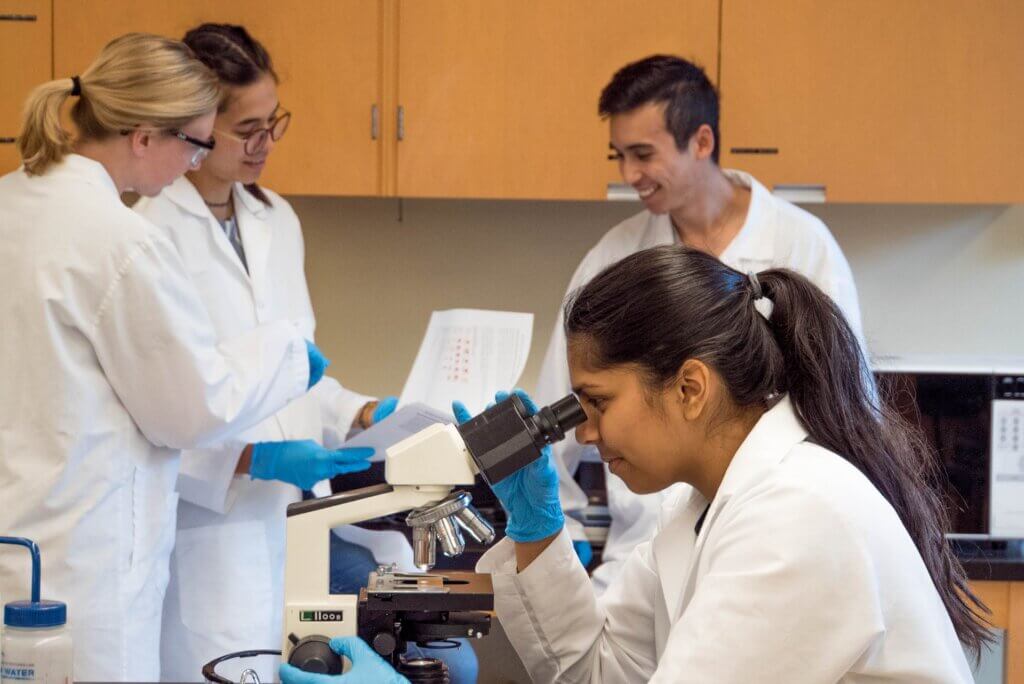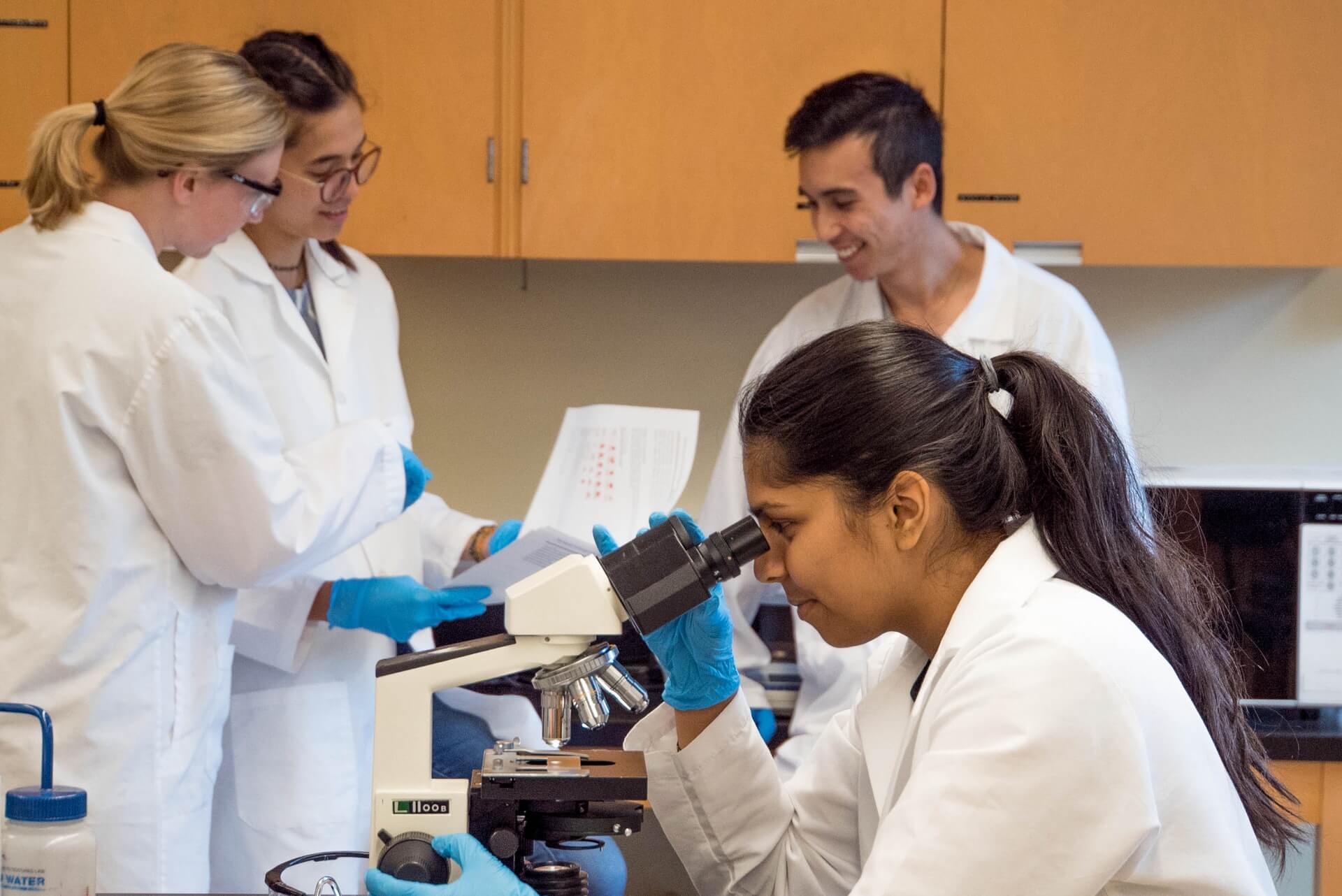
Are you a staff member of a scientific research institution? Have you ever wondered how you can foster positive leadership within your research center or scientific lab? If so, maybe you need to address motivation or performance issues in your research team. Research teams improve their outcomes when they are found in an adequate organizational climate with positive leadership, clear goals, smart management techniques, and assertive communication patterns.
Here are 10 tips for powerful leadership in a scientific context:
- Know your team: Make the most of every chance that you have to know the people who you work with. That means that you may be a better leader if you mindfully hear them and if you really pay attention to who they are. So, if you want to truly touch the heart of your team, you will have to know a bit about their personality, working styles, communication patterns, and so on. Call them by their names, be open to dialogue and, of course, always be respectful.
- Be empathic: This is closely connected with the previous tip. Empathy is when you connect emotionally and not just intellectually with others. It’s about being present at the service of the other and trying to show that you care about them and what’s going on in their lives. Don’t ever judge your team members. Instead, try to understand them and see if you can be helpful. Empathy has been associated with powerful and positive models of leadership because you create meaningful connections with your team that, consequently, foster teamwork by stronger social bonds that transcend the operative tasks of the workplace.
- Set clear goals: To improve your leadership style, you must always be clear, consistent, and coherent with the message that you transmit. One of the most important aspects of your communication is the correct management of goal setting. So, the recommendation is to be SMART (specific, measurable, achievable, relevant, and time-based). It’s not enough to say that your team has to accomplish something. You need to be clear about how, when and why it is indispensable to do that task.
- Supervise: You will not be a good leader if you are always passive. A scientific organization needs control and supervising but this does not have to be hard work. You may find support from team members who may help you. Being a leader is not about doing everything by yourself. It is about finding the true potential of your collaborators and setting the conditions so that they can use it. If you do not supervise, you will lose the opportunity to measure what has been done and that might seem like the team is never up-to-date with the workload or, simply, that they are not doing it well.
- Keep an endless learning philosophy: If you adopt epistemological humility, you will extract all the potential of continuous improvement. Set a clear schedule for seminars, workshops, upskilling courses and other learning opportunities. Even if you are in experimental research or if you work with the best researchers in your team, always consider planning activities that may nourish your intellectual appetite.

- Be a role model: You will have better results if you teach by example. It’s not always necessary to be prescriptive or to tell others how to behave. Being a competent and ethical behavioral model may spread that behavior in the rest of the team by imitation. Plus, you won’t be a good leader if you aren’t a genuine person. Don’t underestimate the power of being coherent.
- Use technology wisely: Stay up to date with management technology. If you set a smart workflow, you will save time. Managing consumes time, and if you find a way to better organize your time, you will invest it in true research activities. By the way, don’t forget to rest and socialize. If you don’t rest, you may be at risk of burnout syndrome – that means that you may end up hating your work because you have high stress levels.
- Acknowledge your team: Be supportive and reinforcing. Social motivation is better than instrumental (material) motivation. People find themselves stimulated when they are told they have done something correctly. So, tell your team members how important they are, how they are doing well and how you recognize their virtues. Plus, you must be ready to receive feedback as well, accept it with humility and use that information to improve your performance.
- Promote interaction: It’s not all about doing research. Try to find interpersonal moments where the team has the opportunity to strengthen their social bonds. So, have fun! If it’s possible, from time to time, break the routine and do something different that may not be something about work.
- Promote a superior purpose. Finally, always remind your team that the scientific work is serving a higher purpose, or however else you would like to call it. There’s something inherently transcendental to the labor of the scientific researcher, given the fact that science builds on the shoulders of giants, and works at the service of mankind. Is that all? Not really, but I hope that you have found this topic interesting, and you could look forward to learning more about responsible, ethical and positive leadership within our academic institutions. Good luck!
 Luiggi Raggio is a Researcher.Life Ambassador. He is a psychologist who hails from Venezuela and is the Academic Secretary of The Research Center of The Social and Economical Sciences Faculty of The Arturo Michelena University.
Luiggi Raggio is a Researcher.Life Ambassador. He is a psychologist who hails from Venezuela and is the Academic Secretary of The Research Center of The Social and Economical Sciences Faculty of The Arturo Michelena University.



